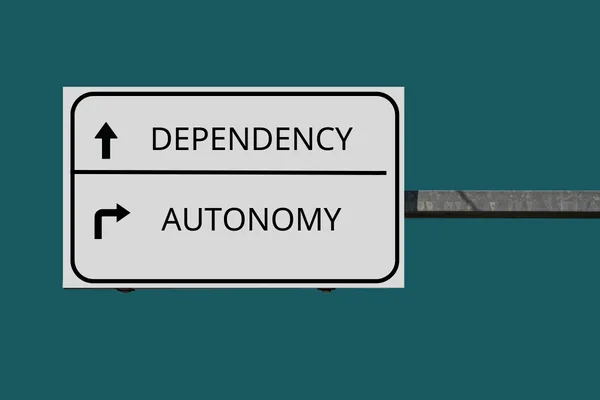INSIGHTS
Discover our insights and the latest thinking in operational efficiency.
INSIGHTS
Discover our insights and the latest thinking in operational efficiency.

Finding Balance Between Control and Autonomy
Running a small business requires being involved in all aspects of operations. However, getting too caught up in the details can hinder your team's growth and independence.
As a small business owner, it's essential to strike a balance between being hands-on and empowering your team. In this article, we'll explore how you can shift away from micro-management and create an environment where your team can thrive autonomously. We'll also discuss practical tools and strategies to foster collaboration and self-reliance.
What is micro-management?
Micro-management happens when leaders and managers excessively control and get involved in every task their team members do. While it may seem like a good way to ensure success, it actually hampers employee growth and creates an unhealthy work environment. Recognising the need to change your management style is key to fostering autonomy in your team.
It's no surprise that micro-management tends to be a common behaviour among small business owners. After all, as passionate and dedicated entrepreneurs, we often have a strong sense of ownership and a deep desire for our businesses to succeed. We've poured our hearts and souls into building our companies from the ground up, and naturally, we want to ensure that every aspect is handled perfectly.
Additionally, with limited resources and a need to wear multiple hats, it's easy for us to get caught up in the day-to-day operations and feel the need to oversee every detail. We fear that if we loosen the reins, things might go awry and jeopardize the success we've worked so hard to achieve.
Pitfalls of micro-management
Now, let's be honest with ourselves. Micro-management might seem like a quick fix, but it has its fair share of downsides:
Stunted employee development: By controlling every decision, we deny our team members valuable learning opportunities and personal growth. They miss out on the chance to take ownership of their work and develop new skills.
Lower team morale: When we constantly scrutinize and lack trust, it brings down the team's morale. And trust me, a demotivated team is far less likely to give their best effort.
Limited creativity and innovation: Micro-management smothers the spark of creativity and innovation within our teams. When we don't give them the freedom to think independently, we miss out on fresh ideas and potential breakthroughs.
Increased dependency: Relying too much on our input creates bottlenecks, slowing down productivity and decision-making. We need to encourage independent problem-solving within our teams.
Shifting focus: Empowering autonomy
So, how do you break free from the micro-management trap and foster autonomy within your teams? Here are some practical steps you can take:
Set clear goals and expectations: Let's communicate goals clearly and explain how each team member's work contributes to them. When everyone understands the big picture, they can make decisions that align with our objectives.
Delegate and trust: Identify the unique strengths of your team members and delegate accordingly. Trust that they will excel in their roles and encourage them to take ownership of their work. Remember, you hired them for a reason!
Foster open communication: Creating a safe and open environment where team members can share their ideas, concerns, and challenges is essential. Regular feedback and involving them in decision-making build trust and empower them to take initiative.
Provide resources and training: Equip your team with the right resources, tools, and training they need to excel in their roles. Investing in their professional development not only benefits them but also allows them to take on more responsibilities and make informed decisions.
Your support system tools
To support your shift towards empowering autonomy, consider implementing the following tools:
Daily Team Check-ins: Regular team meetings provide a platform for alignment, sharing updates, and addressing challenges. Implementing a daily 10-minute team check-in is often cited as one of the most important habits for driving accountability and enhanced performance.
Clear Communication Channels: Utilise project management and communication tools to streamline collaboration and keep everyone connected. These tools promote transparency and enable team members to work independently yet stay in sync.
Performance Metrics and Feedback: Implement a performance measurement system that focuses on key metrics relevant to your business. Regularly provide feedback to your team members, helping them track their progress and identify areas for improvement. Constructive feedback creates a culture of growth and self-assessment.
Empower Decision-Making: Encourage your team members to make decisions within their areas of expertise. Delegate authority and give them the autonomy to solve problems. This builds their confidence and sense of responsibility, while also fostering a culture of independent thinking.
Micro-management may seem like the easy path, but it hinders your team's growth and stifles creativity. By shifting focus towards empowering autonomy, you can create an environment where your team can thrive.
GET MORE SIMPLIFIED OPERATIONS CONTENT AND JOIN OUR CLUB - the go-to place for small business owners who want practical insights and resources to simplify the day-to-day running of their business.
Go to SIMPLIFIED OPERATIONS CLUB
Simplified Operations Ltd.
© Copyright 2023
Registered in England and Wales
14795499
hello@simplifiedoperations.co.uk
Simplified Operations Ltd.
© Copyright 2023
Registered in England and Wales
14795499
hello@simplifiedoperations.co.uk
